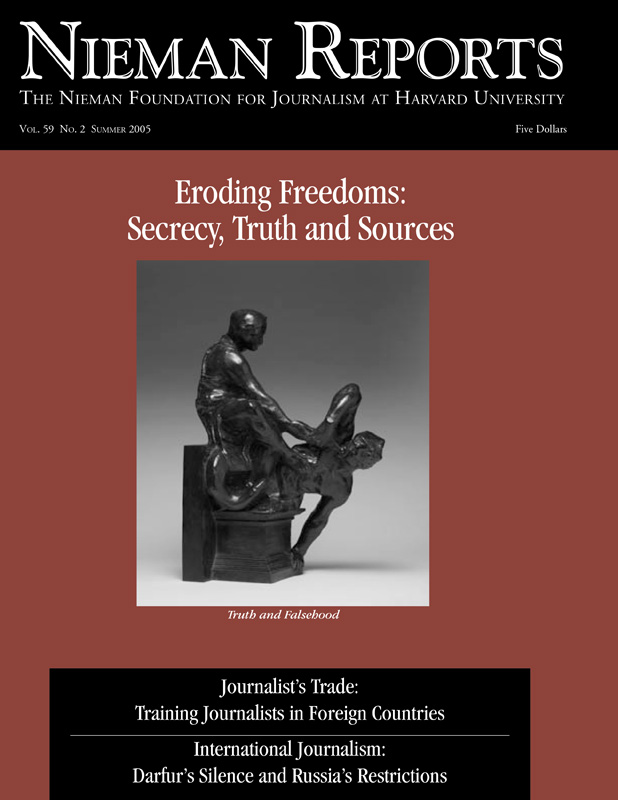Many organizations contribute to international training efforts. In the past, funding has come from a variety of sources, some private, others governmental. The United States Information Agency (USIA), since folded into the public diplomacy wing of the U.S. State Department, launched major programs in Central and Eastern Europe. The Humphrey Fellowships and the Ron Brown Fellowships also support international journalists through the State Department. The International Media Fund was created to fund major training and resources to newspapers and broadcasters. The International Media Training Center of the International Broadcasting Bureau-Voice of America expanded its workshops in the United States and overseas, as well as its professional development year fellowship for journalists.
Private foundations and organizations have also provided key support for these programs. The leaders in this effort include The Open Society programs of George Soros, the work of the Freedom Forum and its former Media Studies Center, Internews, a Californiabased media organization IREX, the International Research & Exchanges program and its ProMedia projects, training centers launched by James Greenfield, formerly of The New York Times, the International Center for Journalists in Washington, D.C., the Meridian International Center, and the National Endowment for Democracy. Other programs that provide education and support for international journalists include the Nieman Foundation at Harvard, the Knight Fellowships at Stanford, the Knight-Wallace Journalism Fellowship at Michigan, the Hubert H. Humphrey Fellowship at Maryland, and the Jack R. Howard Fellowships in International Journalism at Columbia’s Graduate School of Journalism.
In my case, Rutgers University encouraged the school’s involvement and provided a nurturing environment for our institute. When our program was in its infancy, I wrote about our efforts in The Chronicle of Higher Education and that article sparked an offer of help from Bill Moyers, the public broadcaster, who chaired the Florence and John Schumann Foundation. A grant of $300,000 of seed money allowed me to leverage our efforts and led to other foundation and government projects totaling several million dollars over the intervening years.
Private foundations and organizations have also provided key support for these programs. The leaders in this effort include The Open Society programs of George Soros, the work of the Freedom Forum and its former Media Studies Center, Internews, a Californiabased media organization IREX, the International Research & Exchanges program and its ProMedia projects, training centers launched by James Greenfield, formerly of The New York Times, the International Center for Journalists in Washington, D.C., the Meridian International Center, and the National Endowment for Democracy. Other programs that provide education and support for international journalists include the Nieman Foundation at Harvard, the Knight Fellowships at Stanford, the Knight-Wallace Journalism Fellowship at Michigan, the Hubert H. Humphrey Fellowship at Maryland, and the Jack R. Howard Fellowships in International Journalism at Columbia’s Graduate School of Journalism.
In my case, Rutgers University encouraged the school’s involvement and provided a nurturing environment for our institute. When our program was in its infancy, I wrote about our efforts in The Chronicle of Higher Education and that article sparked an offer of help from Bill Moyers, the public broadcaster, who chaired the Florence and John Schumann Foundation. A grant of $300,000 of seed money allowed me to leverage our efforts and led to other foundation and government projects totaling several million dollars over the intervening years.



